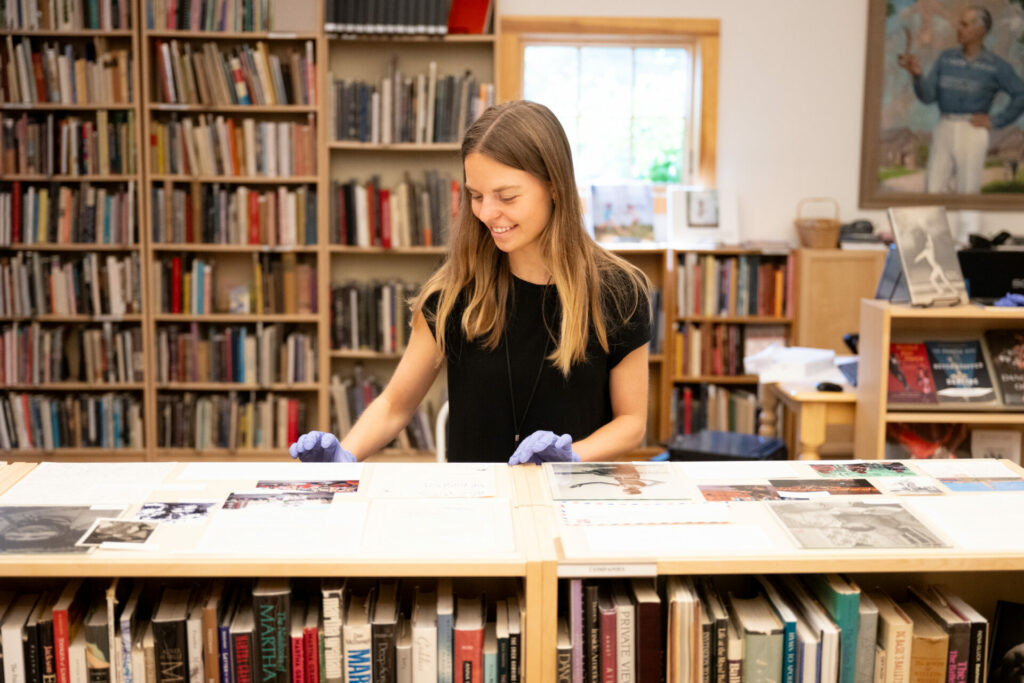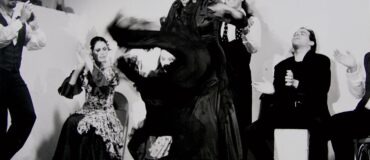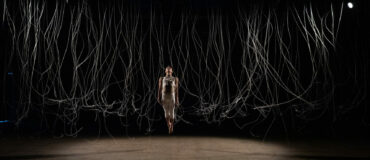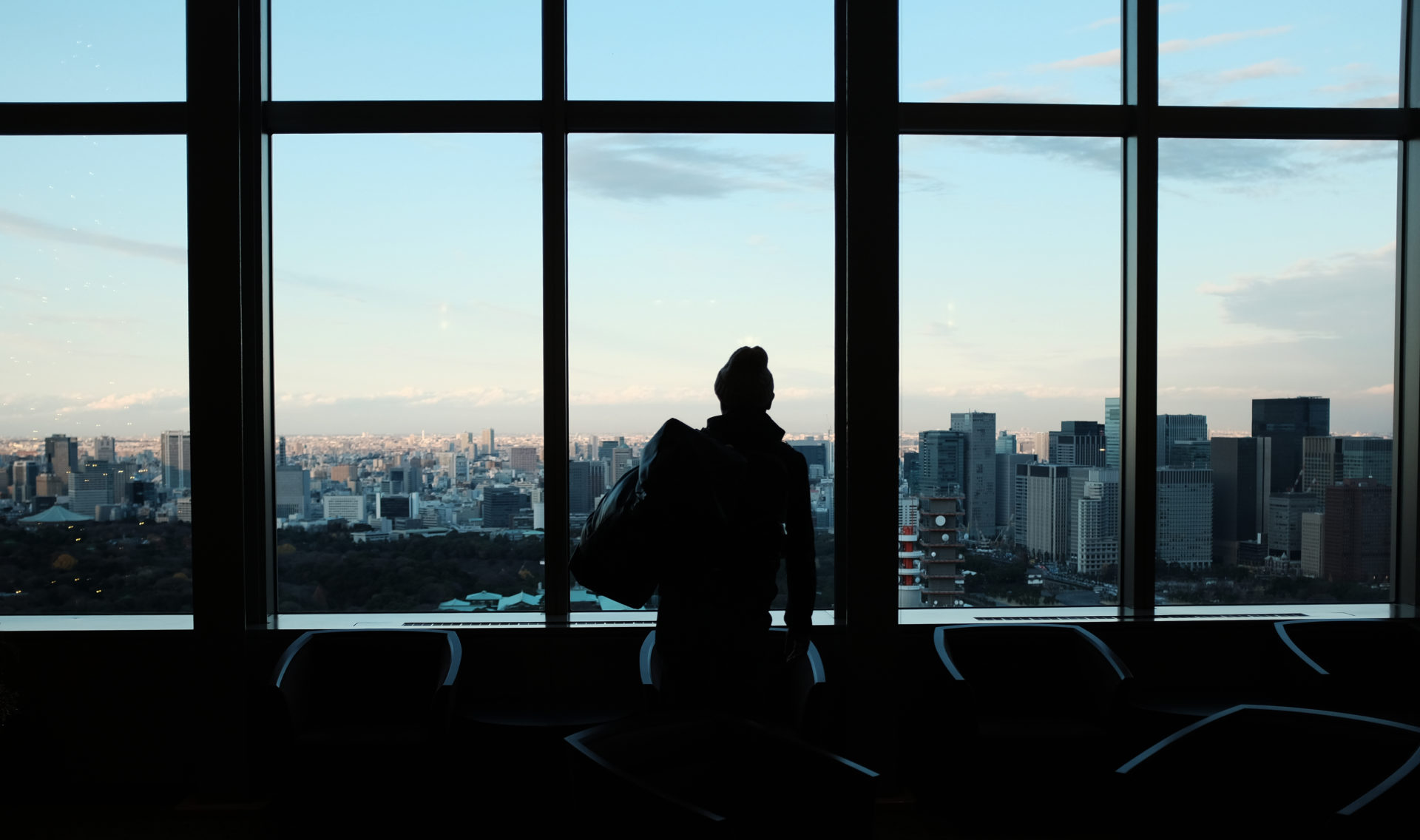By Isabel Brandt
Isabel Brandt is a 2024 Archiving and Preservation Fellow with Dianne Walker. Read more about the Fellowships here. This is the fourth and final part of Isabel’s blog. Read the third part here.
Creating Pathways for Future Generations

Photo by Steven Peterson, courtesy of Twin Cities Tap
In my years working with archives, first as a researcher and now as an archivist, I’ve become increasingly aware of the narratives that are missing from archival preservation efforts and cultural institutions. The primary purpose of this Fellowship is to provide artists with the expertise and resources needed to preserve their own stories, ultimately creating space for more diverse dance histories to be shared. This summer, I learned that many tap dancers throughout history have been left unacknowledged by larger cultural institutions, their legacies surviving mostly through the generational teachings of the tap dance community. This gap in recognition and documentation deeply resonated with me — it not only reflects the ongoing struggle to preserve the vast history of dance in all forms, but nods to the importance of establishing Dianne Walker’s archives. Dianne’s archives convey the creative work and legacy of her extensive career, but some materials also bridge important historical gaps by highlighting the tap scene in Boston and older tap generations. Whether her collection eventually resides in an institutional repository or community archive, it will serve as a vital resource for preserving the legacy of tap dance in the U.S. The narrative of her archive offers insight into both her individual contributions and the broader cultural history of the art form, ensuring that future generations can access and learn from this rich heritage.

Dianne Walker honored by Greater Grove Hall Main Streets in Boston, MA.
Being a part of this experience has made me think critically about the archival process and how community outreach is essential to the work. Many dance stories are lost without exposure to archives as a place for preservation. Dance/USA offers archiving and preservation services and guidance to help preserve the legacy of dance across the country. This underscores the importance of working directly with artists and their communities, ensuring that their contributions are documented in a way that reflects their lived experiences. By fostering a relationship with Dianne, I experienced the profound impact of seemingly everyday ephemera, explored her history alongside her own process of discovery, and arranged her collection to reflect her desired narrative. Exploring her history alongside her was not just about cataloging her past; it was about discovering how she saw her own legacy and finding ways to shape the collection to honor that perspective. This collaboration emphasized that archives are dynamic collections, continuously shaped by the people and stories they preserve.

Dianne as a child.
This experience has also deepened my awareness of the importance of placing archives within their broader social, cultural, and historical contexts. While the materials within an archive hold intrinsic value, their true significance often lies in the connections they reveal between people, places, and moments in time. This insight will shape my approach to archival projects in the future, prompting me to look beyond the surface of documents and objects and seek out the deeper narratives they tell. By doing this, I can create archives that are not only well-organized, but also rich in context, providing valuable insights for researchers, artists, and the public alike.
As I continue to grow in the field of archiving, I will carry these lessons with me, recognizing that an archivist’s role goes beyond the preservation of history. It is about creating pathways for future generations to engage with and learn from that history. Whether I find myself in a research library, a performing arts institution, or a community archive, my goal will be to ensure that the collections I curate are accessible, inclusive, and reflective of the diverse voices that contribute to our cultural heritage. This Fellowship has reaffirmed for me the transformative power of archives, and I am committed to contributing to the field in ways that honor its potential to inspire and educate across generations.
All photos courtesy of Dianne Walker.
Header image: Left to right: Bernard Manners, Dianne Walker, Melvin Washington, Ivery Wheeler backstage for the production of Black and Blue – Théâtre du Châtelet, Paris, France, 1985.

Isabel Brandt is currently pursuing a Master’s Degree in Library and Information Science at Pratt Institute with a focus in archival studies. She received her BFA in Dance from The Ohio State University through which she pursued several research projects exploring the process of dance archiving and reconstruction. As an Undergraduate Library Research Fellow, Isabel conducted archival research and created a guide to unprocessed dance scores in the Dance Notation Bureau Collection to explore digital librarianship with dance notation. In 2022, she presented her research abroad to an international community of dance archivists and researchers at the conferences of the International Council of Traditional Music (ICTM) and the International Council of Kinetography Laban (ICKL). As an Archives and Audience Engagement intern with Jacob’s Pillow Dance Festival, Isabel furthered her expertise in archival reference, exhibition development, finding aid cataloging, and archival processing. Isabel is drawn to the unique, collaborative, and creative nature of dance archiving and is excited to explore how the archivist role can center artistic voice and identity.
Photo credit: Christopher Duggan
____
We accept submissions on topics relevant to the field: advocacy, artistic issues, arts policy, community building, development, employment, engagement, touring, and other topics that deal with the business of dance. We cannot publish criticism, single-company season announcements, and single-company or single artist profiles. Additionally, we welcome feedback on articles. If you have a topic that you would like to see addressed or feedback, please contact communications@danceusa.org.
Disclaimer: Opinions expressed in guest posts do not necessarily represent the viewpoints of Dance/USA.





